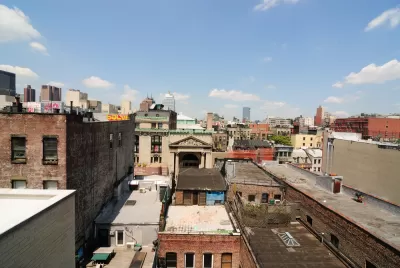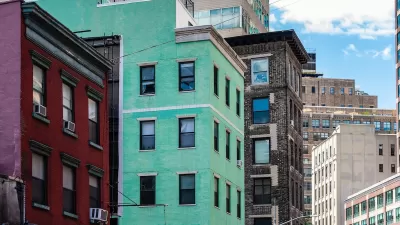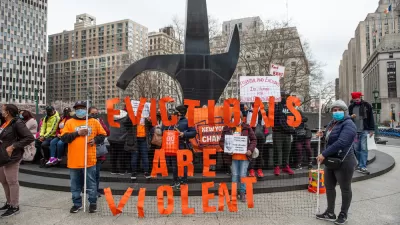Violations of the building code go unenforced in New York City.

Joe Anuta reports:
In April of 2016, Mayor Bill de Blasio signed three bills that were designed to help the city collect $1.6 billion in outstanding fines for everything from building code infractions to tickets from the sanitation department. But the latest figures indicate that the value of the city's claim has barely changed.
Earlier in the week, fines owed by landlords made related news, when the Associated Press reported that Kushner Cos. owe around $500,000 for building code violations, most of which the company racked up while President Trump's son-in-law was running the company.
Despite the celebrity associated with those fines, the city's problem is much, much larger.
"The city struggles to collect fines for several reasons," according to Anuta. "But in general, scofflaws have little incentive to cough up the cash. Most of the violations are issued by the city's Department of Buildings to landlords and developers who typically own property through limited-liability companies and treat the fines as part of doing business. Owners can typically continue to obtain permits for work from the city regardless of their balance, and the statute of limitations on the fines expires after eight years."
Compared to landlord Steve Croman, who owes $1 million in fines, Kushner Cos. isn't even the worst offender.
FULL STORY: Kushner's got company: Despite new laws, city fails to collect $1.5B in fines

Planetizen Federal Action Tracker
A weekly monitor of how Trump’s orders and actions are impacting planners and planning in America.

San Francisco's School District Spent $105M To Build Affordable Housing for Teachers — And That's Just the Beginning
SFUSD joins a growing list of school districts using their land holdings to address housing affordability challenges faced by their own employees.

The Tiny, Adorable $7,000 Car Turning Japan Onto EVs
The single seat Mibot charges from a regular plug as quickly as an iPad, and is about half the price of an average EV.

Seattle's Plan for Adopting Driverless Cars
Equity, safety, accessibility and affordability are front of mind as the city prepares for robotaxis and other autonomous vehicles.

As Trump Phases Out FEMA, Is It Time to Flee the Floodplains?
With less federal funding available for disaster relief efforts, the need to relocate at-risk communities is more urgent than ever.

With Protected Lanes, 460% More People Commute by Bike
For those needing more ammo, more data proving what we already knew is here.
Urban Design for Planners 1: Software Tools
This six-course series explores essential urban design concepts using open source software and equips planners with the tools they need to participate fully in the urban design process.
Planning for Universal Design
Learn the tools for implementing Universal Design in planning regulations.
Smith Gee Studio
City of Charlotte
City of Camden Redevelopment Agency
City of Astoria
Transportation Research & Education Center (TREC) at Portland State University
US High Speed Rail Association
City of Camden Redevelopment Agency
Municipality of Princeton (NJ)





























